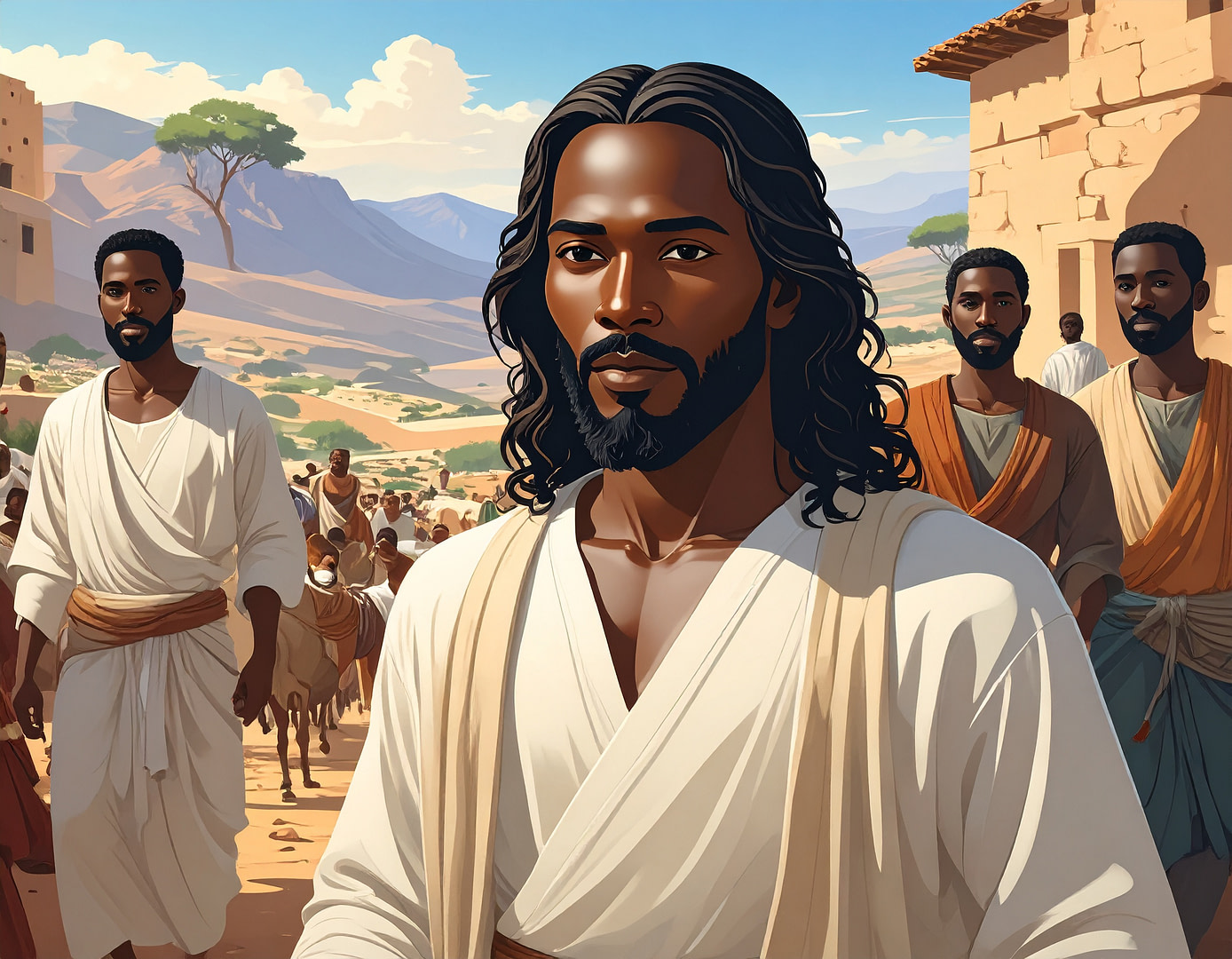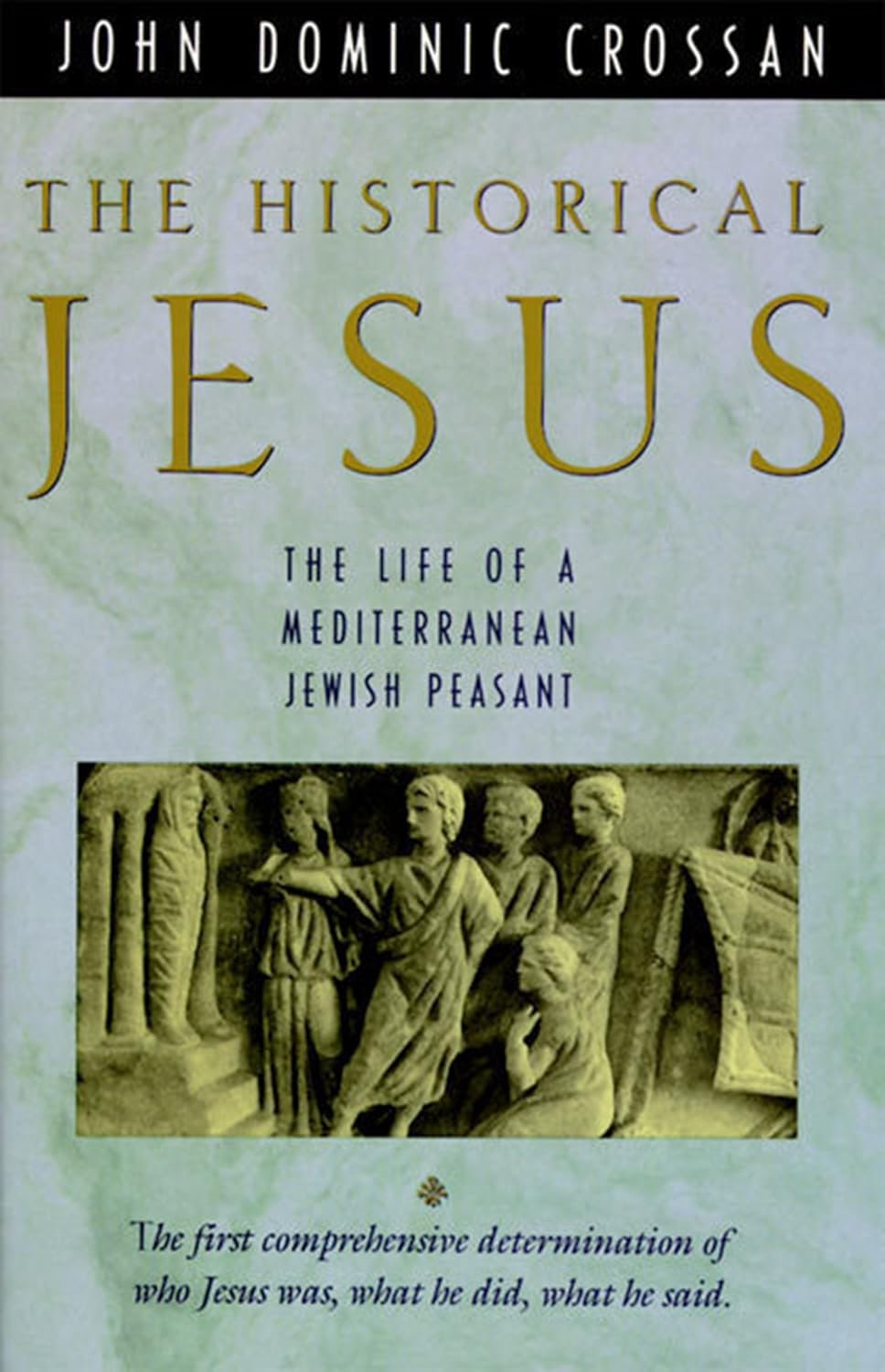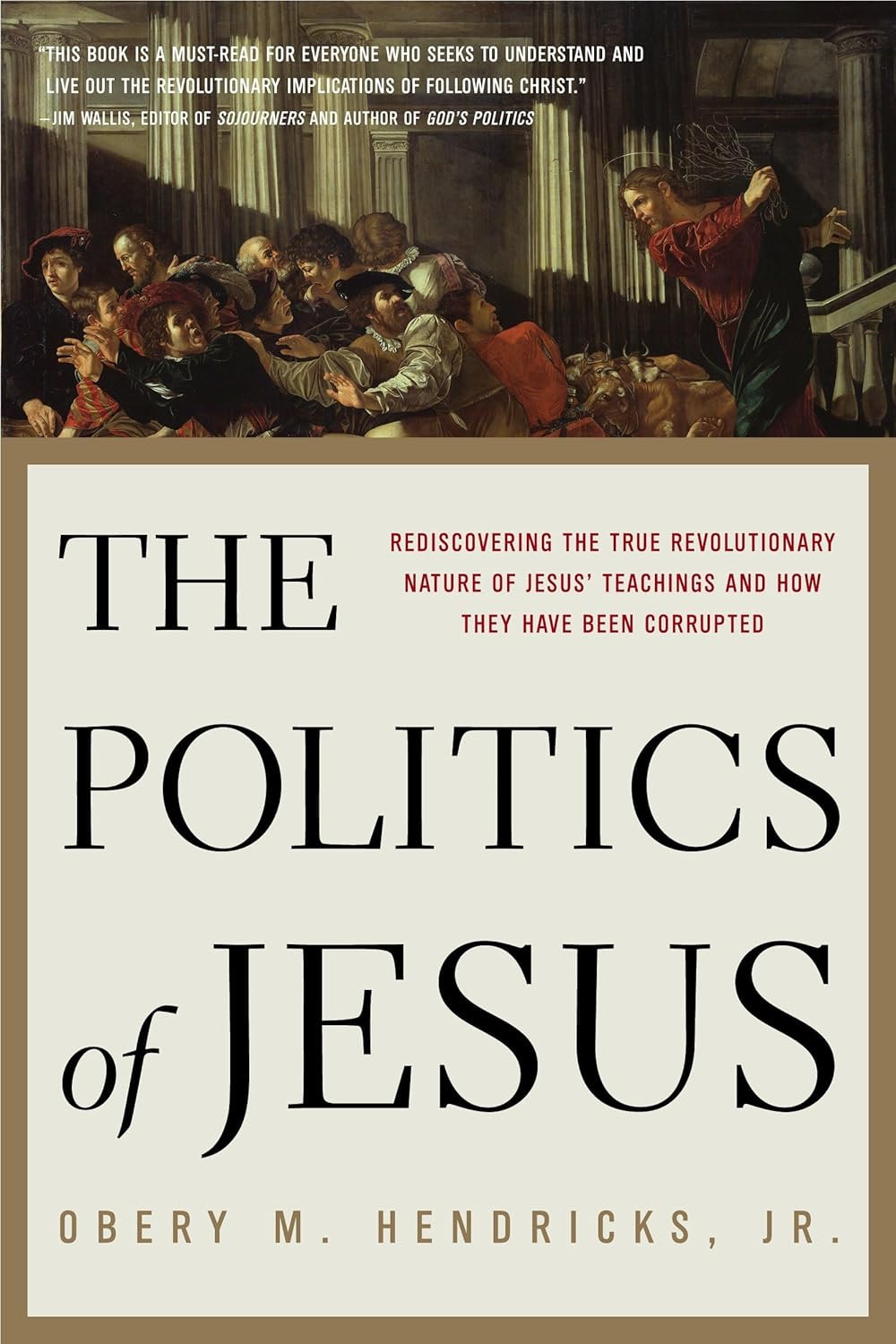“I’m a better Christian than most, and I’m an atheist” is a meme or quote that I see on social media from time to time. My fear is that it might be true, especially for the “Christian” voices I see online, on TV, or from “so-called” Christian politicians. While, of course, I do not know anything about the person making the above claim, my fear comes from the fact that few Christians understand or try to follow the teachings of Jesus of Nazareth or emulate his life. At best, they focus completely on the risen Christ and boast about their individual salvation and the personal relationship they have with Jesus. Those are important things. However, one does not truly understand the nature of the risen Christ or have a personal relationship with Jesus if Jesus of Nazareth is missing from the equation.
Few figures in human history have inspired such devotion, debate, and division as Jesus of Nazareth. His teachings form the basis for a global religion that has shaped civilizations, cultures, and personal lives for over 2,000 years. His profound commitment to love, justice, compassion, and inclusivity was both radical for his time and remains pertinent in contemporary discussions about morality, ethics, and faith. Yet, in the modern age, there is a growing perception—and sometimes a pointed critique—that the radical ideals and revolutionary ethics Jesus embodied have been diluted or ignored by many who claim his name. Simultaneously, some self-declared atheists, skeptical of the supernatural claims of Christianity, live lives that more closely align with the ethical demands of Jesus than many professed believers.
The Radical Nature of
Jesus of Nazareth’s Life and Teaching
A. Historical Context
Jesus was born in a region dominated by the Roman Empire, among a people oppressed politically and burdened by religious formalism. The Jewish society of first-century Palestine was characterized by profound social and economic stratification, stringent religious codes, and a yearning for liberation. Into this world stepped Jesus from Nazareth—an unlikely candidate for revolutionary religious leadership.

B. The Teachings: Love, Forgiveness, Inclusion, Assistance, and Nonviolence
‘Lord, when was it that we saw you hungry or thirsty or a stranger or naked or sick or in prison and did not take care of you?’ 45 Then he will answer them, ‘Truly I tell you, just as you did not do it to one of the least of these, you did not do it to me.’ 46 And these will go away into eternal punishment, but the righteous into eternal life.” (Matthew 25: 44-46)
It is essential to place this scripture in context, specifically within the section titled “the judgment of the nations.” Yet, we have so-called Christian politicians who take away food, healthcare, and imprison the least of these. Moreover, we have a whole slew of those who profess to be Christians but vote for such politicians and support their policies in the name of Christ, often because those politicians oppose abortion and gay and transgender rights. However, here we have a clear and unequivocal teaching of Jesus, in contrast to those other subjects on which Jesus says nothing.
At the heart of Jesus’ message was a call for a love that transcended all social boundaries. “Love your enemies and pray for those who persecute you” (Matthew 5:44), he taught—words that would have seemed not merely difficult but genuinely subversive in a context rife with ethnic hatred and Roman oppression. In the Sermon on the Mount, Jesus recast religious devotion, not as outward piety but as inward transformation: “Blessed are the poor in spirit...blessed are the meek...blessed are the peacemakers” (Matthew 5:3-9). He demanded forgiveness, not seven times, but “seventy times seven” (Matthew 18:22), and called for humility so profound that the greatest among his followers would be the “servant of all” (Mark 9:35).
Another radical teaching was His reinterpretation of the law. In the Sermon on the Mount (Matthew 5–7), Jesus advocated for a deeper understanding of the law, encouraging his followers to engage in a spirituality that surpasses mere compliance. For instance, Jesus expanded the commandment against murder to include anger and contempt (Matthew 5:21-22) and redefined adultery to encompass lust (Matthew 5:27-28). These reinterpretations emphasized the intention behind actions rather than the actions alone, calling for a transformation of the heart.
Moreover, one cannot overlook Jesus’s radical vision of the Kingdom of God, characterized by equity, mercy, and justice. His parables, such as the Good Samaritan (Luke 10:25-37) and the Prodigal Son (Luke 15:11-32), suggest a re-imagined society where grace and reconciliation replace judgment and division. Jesus’s statements regarding wealth and poverty, particularly his warning about the difficulty of the rich entering the Kingdom (Matthew 19:24), also reflect his radical stance against materialism and the structures that perpetuate inequality.
C. Social and Religious Revolution
Christian theologians often refer to Jesus as a radical figure, as His teachings deviated significantly from the normative Jewish practices of His day and challenged the status quo. One of the most radical dimensions of Jesus’s teachings was His inclination towards love and inclusivity. He associated with marginalized groups, such as the poor, lepers, tax collectors, and women. In Matthew 11:19, Jesus states, “The Son of Man came eating and drinking, and they say, ‘Look at him! A glutton and a drunkard, a friend of tax collectors and sinners!’” This association with outcasts underscores a profound commitment to social justice and compassion that transcends barriers of ethnicity, social status, and morality.
Most Christians are concerned with being respectable. How many church members today would be mistaken for gluttons or drunkards because they hang out with the wrong people? Most Christians completely overlook the fact that Jesus hung out with all the wrong people. Yes, he did go to the Temple and to the synagogue, but he was frequently condemning the religious leaders he met there. He denounced the hypocrisy of religious elites and overturned the tables of money changers in the Temple, challenging both spiritual and economic exploitation. His parables upended expectations: the despised Samaritan was the true neighbor; the prodigal son was welcomed home.
We fail to realize that fishermen were not pious people; they were sinners, as they could not keep the purity laws. We may not like the IRS official who audits us, but we fail to understand that tax collectors worked for the oppressive Roman government. They were agents of the enemy. Plus, they were cheats. They had to be, as they did not receive a salary, but made their living by collecting more than was due, and the most successful individuals collected significantly more than what was due.
And then there were women; according to Scripture, the Twelve were all men, but it also portrays many women traveling with him, and some, such as Mary Magdalene, were extremely close to him. That may not seem very problematic to us today, but a pious, unmarried Jewish man of his time would not have talked to women.
Let's examine the story of the woman at the well, as told in John 4. It is a scandalous story worthy of a front-page headline in the National Enquirer. First, Jesus is by himself when he encounters her, and yet he speaks to her. He might as well have slept with her, because that is what everyone would have concluded. But then consider that she was a Samaritan. But the problems do not stop there, as she has had five husbands and is now living with a man who is not her husband. Even more shocking, she becomes one of the first preachers of the Gospel. I think it is fair to say that today, Jesus would be much more comfortable in gay bars, at drag shows, and at homeless encampments than in our churches. Jesus of Nazareth hung out with people who were on the margins of society.
I would suggest that all of us Christians read the second chapter of James regularly and be reminded, for instance:
4 What good is it, my brothers and sisters, if someone claims to have faith but does not have works? Surely that faith cannot save, can it? 15 If a brother or sister is naked and lacks daily food 16 and one of you says to them, “Go in peace; keep warm and eat your fill,” and yet you do not supply their bodily needs, what is the good of that? 17 So faith by itself, if it has no works, is dead.
Conclusion
In every age, Jesus’ teachings retain a radical edge—calling into question injustice, privilege, and the easy certainties of religious and secular moralism alike. The command to love one’s enemies, to forgive without limit, to care for the poor and marginalized, remains a profound challenge not only to his contemporaries but also to the power structures and cultural divisions of every subsequent era, including our own.
I make no great claim in personally living up to the teachings and example of Jesus. It is so very difficult to do so. However, I do know the things that Jesus' teaching calls us to do. I understand that when Jesus said things about what we are supposed to do, He really meant it, and that we cannot do the opposite and claim to call Him Lord. And our politics cannot do the opposite and call itself Christian.







Great commentary by Joel.
I find the message of Jesus compelling and inspiring. But what I struggle with is threefold: 1) the evidence that such a person as Jesus actually existed; 2) the fact that stories and teachings associated with this figure were done centuries after he was alleged to have died, which introduces the complexity of memory and oral tradition into the content; and 3) the issue of translation. Not being fluent in Greek or Aramaic, how reliable is the text I am using? Add in Henry VIII’s edits and contemporary updates and recycles of the biblical accounts of Jesus and it’s problematic, for me at least.
Lori, those are good questions. But the issues are not as problematic as you state. There are a few historical references to Jesus. The stories are only decades, not centuries, after the fact. Also, research has shown that oral traditions can be very accurate, often more accurate than when things were copied by hand. Also, reputable translations are not going through Henry; they are based on much older manuscripts and on multiple manuscripts (which do not always agree). The translations are done by groups of biblical scholars working on the basis of the best scholarship available. There are several good translations, but I would recommend the New Revised Standard Edition, which has now been updated based on new research, discoveries, and scholarship. Here is a pretty good description of the process that I think you will find helpul: https://www.biblegateway.com/versions/New-Revised-Standard-Version-Updated-Edition-NRSVue-Bible/